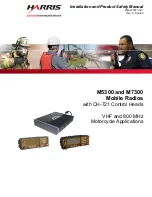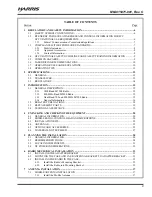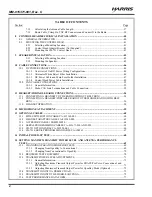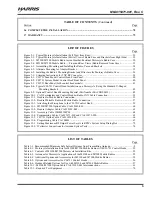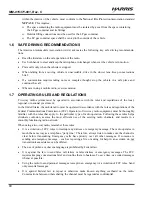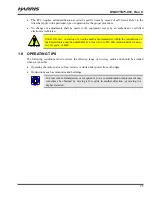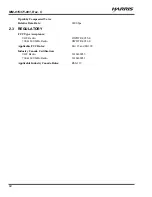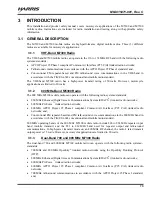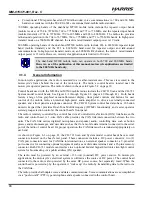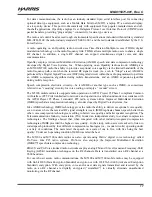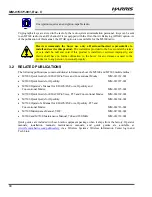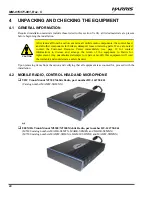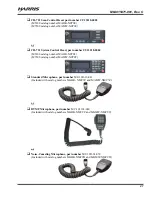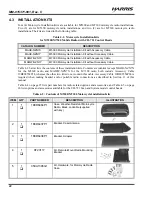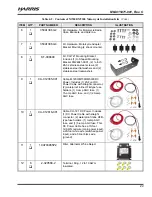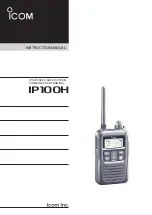
MM-015371-001, Rev. C
10
within the interior of the vehicle, must conform to the
N
ational
F
ire
P
rotection
A
ssociation standard
NFPA 58
. This requires:
The space containing the radio equipment must be isolated by a seal from the space containing
the LP gas container and its fittings.
Outside filling connections must be used for the LP gas container.
The LP gas container space shall be vented to the outside of the vehicle.
1.6 SAFE DRIVING RECOMMENDATIONS
The American Automobile Association (AAA) advocates the following key safe driving recommenda-
tions:
Read the literature on the safe operation of the radio.
Use both hands to steer and keep the microphone in its hanger whenever the vehicle is in motion.
Place calls only when the vehicle is stopped.
When talking from a moving vehicle is unavoidable, drive in the slower lane. Keep conversations
brief.
If a conversation requires taking notes or complex thought, stop the vehicle in a safe place and
continue the call.
Whenever using a mobile radio, exercise caution.
1.7 OPERATING RULES AND REGULATIONS
Two-way radio systems must be operated in accordance with the rules and regulations of the local,
regional, or national government.
In the United States, the mobile radio must be operated in accordance with the rules and regulations of the
Federal Communications Commission (FCC). Operators of two-way radio equipment, must be thoroughly
familiar with the rules that apply to the particular type of radio operation. Following these rules helps
eliminate confusion, assures the most efficient use of the existing radio channels, and results in a
smoothly functioning radio network.
When using a two-way radio, remember these rules:
It is a violation of FCC rules to interrupt any distress or emergency message. The radio operates in
much the same way as a telephone “party line.” Therefore, always listen to make sure the channel is
clear before transmitting. Emergency calls have priority over all other messages. If someone is
sending an emergency message – such as reporting a fire or asking for help in an accident, do not
transmit unless assistance can be offered.
The use of profane or obscene language is prohibited by Federal law.
It is against the law to send false call letters or false distress or emergency messages. The FCC
requires keeping conversations brief and confine them to business. To save time, use coded messages
whenever possible.
Using the radio to send personal messages (except in an emergency) is a violation of FCC rules. Send
only essential messages.
It is against Federal law to repeat or otherwise make known anything overheard on the radio.
Conversations between others sharing the channel must be regarded as confidential.

